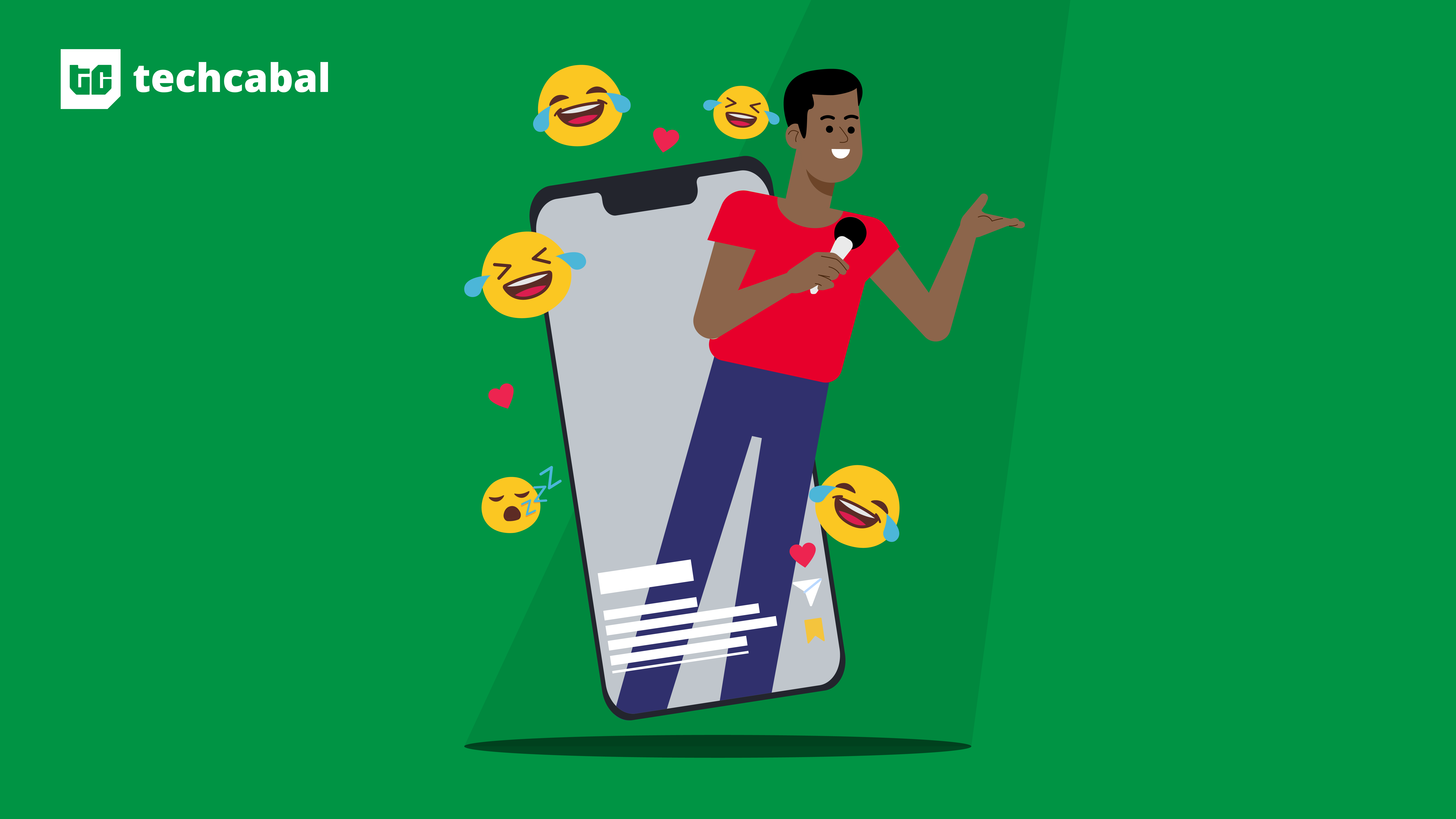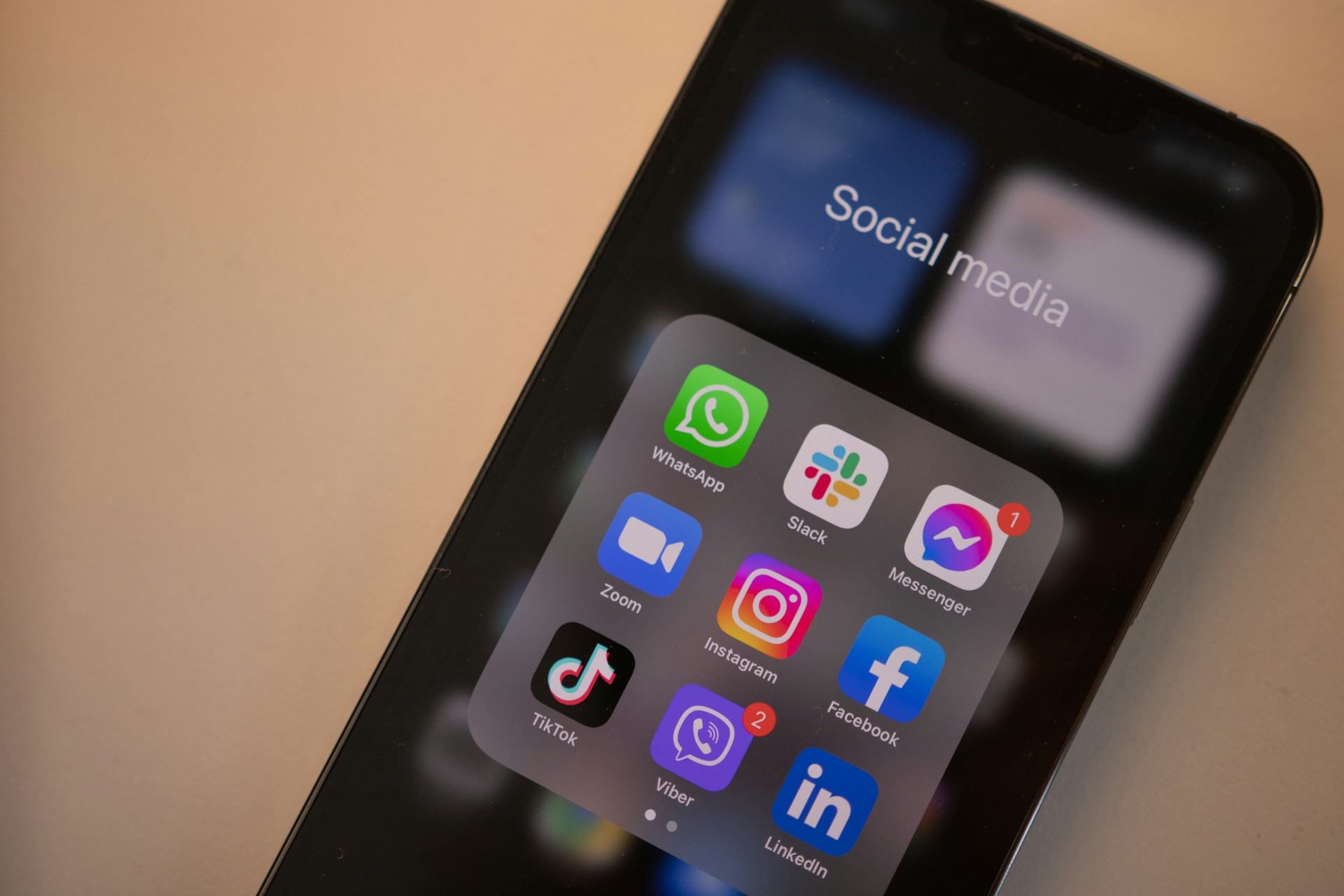In October 1995, Opa Williams organised the first edition of Nite of a Thousand Laughs, Nigeria’s first mainstream comedy show. The show enjoyed critical success and ran for 17 years, producing some of the biggest comedy talents in the country like Basketmouth, Okey Bakassi, Julius Agwu, and Klint Da Drunk, amongst others. In that span of time, these artists went from being struggling comedians to multimillionaires. As the new acts became successful, they also created their independent show and events, cementing the idea that for comedians, the only route to success was through the stage.
As most of these events were in Lagos, hopeful comedians would travel from out of state to navigate the politics in the industry and secure slots at a comedy show. There were running “Warri” jokes among comedians, as a large number moved from Warri to Lagos for their careers. These talents spent months tirelessly working to craft material or scripts that were good enough to make the audience cackle and earn them an invitation to the next show. According to Francis Ogudu, a popular Nigerian comedian fondly known as I Go Dye, getting a slot at a show wasn’t easy business as a newbie.
“Regardless of how talented you were, you needed the right people to invite you to the right shows in Lagos, because that was what guaranteed you success. You needed to know an organizer, a sponsor, or even have a friend who could get you on stage at these shows. You could have the funniest material but if there was no one to tell it to, what is the point?,” he shared.
But that era of big comedy shows as the only surefire way for comedians to find critical success has changed over the years. Thanks to the internet and social media platforms, comedy’s notoriously high barrier to entry has been reduced, and as Nigeria’s internet connectivity improved, comedy expanded beyond the stage. Recordings of physical comedy shows on YouTube amass millions of views, signalling to comedians that there was an audience beyond those who attended in person. Soon enough, they started creating comedy videos for online audiences. One such show was AY’s Crib, created by the comedian, Ayo Makun.
Comedy on social media
But that was only one small step in comedy’s evolution. Today, Nigerian comedians can launch their careers anywhere in the world with a smartphone, internet access and basic editing skills. Some of the popular pioneers of social media skits include Crazeclown—a Nigerian doctor then based in Ukraine, whose skits typically demonstrated the hilarious relationship between a father and his mischievous son, Ade—and Woli Agba, whose skits follow the adventures of an overbearing prophet and his cheeky protege, Dele. Today the online comedy scene has many recognisable names like Taooma, Maraji, Justin UG, Josh2funny, Mr Macaroni, Mark Angel, and Lasisi. Without needing to move to Lagos or even appear or stage, they have become household names.
Making people laugh is a lot of work
Justin Ugonna, known as Justin UG, is a US-based actor and content creator who became popular for his High School Chronicles, a series that depicts the relatable realities of high school in Nigeria. From making dance content for his three followers on Vine in 2009, he moved to Youtube and Instagram in 2016 after seeing how fast the content scene on these apps were growing.
Justin didn’t start out wanting to be funny, his videos just happened to make people laugh, and in 2018 —after his video went viral for the first time— he decided to take comedy seriously. Now, he has over 400K followers on Instagram and Twitter, although he says that he doesn’t create content for fame or to amass large followership.
At the moment, Justin’s videos are short and sharp, and he doesn’t write any scripts. “My videos are mainly about relatable, everyday stuff. They’re like real-life situations that nearly everybody has experienced at one time or another. So, I just think of scenarios that people would be able to relate to or would bring up nostalgia and just act it, improvising lines as I go.” he said. “However, I’ve started working with a team of three storytellers and one scriptwriter and we brainstorm content ideas together. I always end up not using the scripts from the scriptwriters. We just decide what idea to work with and I shoot,” he shared with TechCabal over a phone call during his lunch break.
To shoot his videos, Justin uses his phone, an iPhone 14 Pro Max, and does nearly everything by himself as it helps him maintain autonomy and work on his time. On rare occasions, he employs the help of his roommate to record certain angles he is unable to capture with his tripod. “Once I return from work, have dinner and wake up from my nap, I start thinking of what to shoot because I post at nine o’clock Nigerian time every day, which is 1 am for me. After shooting, I edit —which takes one or two hours—, and post, then use another hour to reply to a couple of comments and see how people are feeling about the video. I try not to shoot videos during the weekends, but it’s almost as if my body is used to it and I can’t sleep otherwise.”
Virality is the new marker of success
Sharing skits on social media increases the possibility of reaching millions of people in minutes. The virality that social media platforms can give is today’s new marker of success. One skit maker who understands the concept of unplanned virality is Peter Tauna, also known as Mma Kasham, a comedian known for his hilarious depictions of middle-aged mothers in Northern Nigeria. Tauna wasn’t prepared for popularity when it came, and unlike other acts that had to wait months or years to go viral, he achieved it on his first attempt.
On Valentine’s Day of 2019, he was about to take a shower when he saw his mother’s wrapper on her bed. He tied the wrapper and recorded a video mimicking the Zumuntan Mata (women’s fellowship) church group’s performance, and posted it to Facebook to make his friends laugh. When he came out of the bathroom, his phone was vibrating non-stop from a combination of notifications and calls. The video went beyond his Facebook as it was shared widely across other platforms, eventually landing on big Instagram accounts like Tunde Ednut and Audu Maikori. Since then, he has consistently put out videos on his social media platforms and has gained thousands of followers and millions of impressions. His songs and quips have gone beyond social media, and even people who have never seen the video know his versions of the songs.
The role of the online audience
Social media skits have become so important that they cannot be ignored by the old-timers who made their name on stage. Comedians like Basketmouth, Bovi and Chigurl, who had gained fame before the emergence of social media, edit their old jokes into skit formats or create new ones to strengthen their audience base. It’s a sign that they’re moving with the times, but it’s also a nod to the economic opportunities that being online provides.
While stand-up comedy talents get paid for physical shows, skit makers make their money from brand partnerships, ads, and in some cases, invitations to host live performances. These are big deals for creators, as they can charge as much as a million naira per sponsored post. The amount paid for ads to a creator with 500K Instagram followers is much more than the amount paid to a creator with less than 50K followers. This takes the audience from mere consumers or receivers to stakeholders.
Having identified the power of the online audience in the journey to being a successful skit maker, these artists try to satisfy the audience as there is steep competition for the fan base. This is not the easiest thing to navigate, as with every creative field, there’s always a cross-section of the audience who are difficult to please.
Tauna is no stranger to this, as he has almost had his church membership revoked because of his skits. “One day, the reverend called me to church and asked that I quit using the church’s wrapper in my videos or risk being excommunicated. Some viewers recognised the fabric from the video and claimed that I was making a mockery of God and the church,” he shared with TechCabal. “I have had fans in the comment section sometimes drop hurtful or mean comments as well in the name of feedback.”
Is comedy now more skits than stand -up?
Social media has arguably reshaped the concept of entertainment—where and how the audience gets entertained, as well as the general experience. Most of the consumption of comedy is now on social media, and an effect of this is that the younger generation associate comedy with skits more than they do with comedy shows.
Helen Paul, a popular stand-up comedian, believes that fans are already amused by watching skits and so they don’t see the value in coming to watch stand-up comedy. “Comedy fans are already losing interest in and developing lethargy for stand-up comedy. The thrill of purchasing tickets and driving to a stand-up comedy event might be lost. Why would anyone want to lose sleep over a stand-up comedy show when he or she can just watch it in the comfort of his or her home on a mammoth-sized curved TV with surround stereo speakers?”
I Go Dye doesn’t completely agree with that, and thinks that there is still space for standup comedy. He believes that while interest in attending stand-up shows has reduced, there is still a loyal audience for stand-up shows. In 2015, he sold out the 02 Arena in London, and also sold out his show in 2022, themed I Go Dye Standing: More Than A Legend, which had music and comedy powerhouses like 2Baba, Okey Bakassi, Maleke and Tiwa Savage perform.
According to him, “One thing social media skits cannot replace is the energy from standup comedy. When you perform at a comedy show, watching people laugh in real-time and seeing the effects of your jokes in person, feeling how the energy in the room rises and crashes, you know that can never be replaced by skits. I still have people asking me to perform or organize shows, so there’s still an audience for that.”
Tauna, who has been in comedy for only four years, admits that he’s not ready for stage performances. “My online skits are just for about three minutes and I don’t even write scripts. You can’t put me in front of a crowd to perform for 15 minutes at this point in my career, because what would I tell them after the first three minutes?,” he said with a chuckle.
Standup comedy requires some skin in the game and a higher level of expertise, but comedy skits also require serious work. To navigate a career in comedy content creation, you need to have an entire suite of skills ranging from acting skills, video skills, editing skills, as well as social media skills. These are things standup comedians don’t have to worry about,” he shared.
While it’s clear that stand-up comedy will always be regarded as the high point of the comic art form, online skitmakers have shown that sometimes art forms evolve. And that evolution may look like the skit that’s about to pop up on your Instagram reel.




















